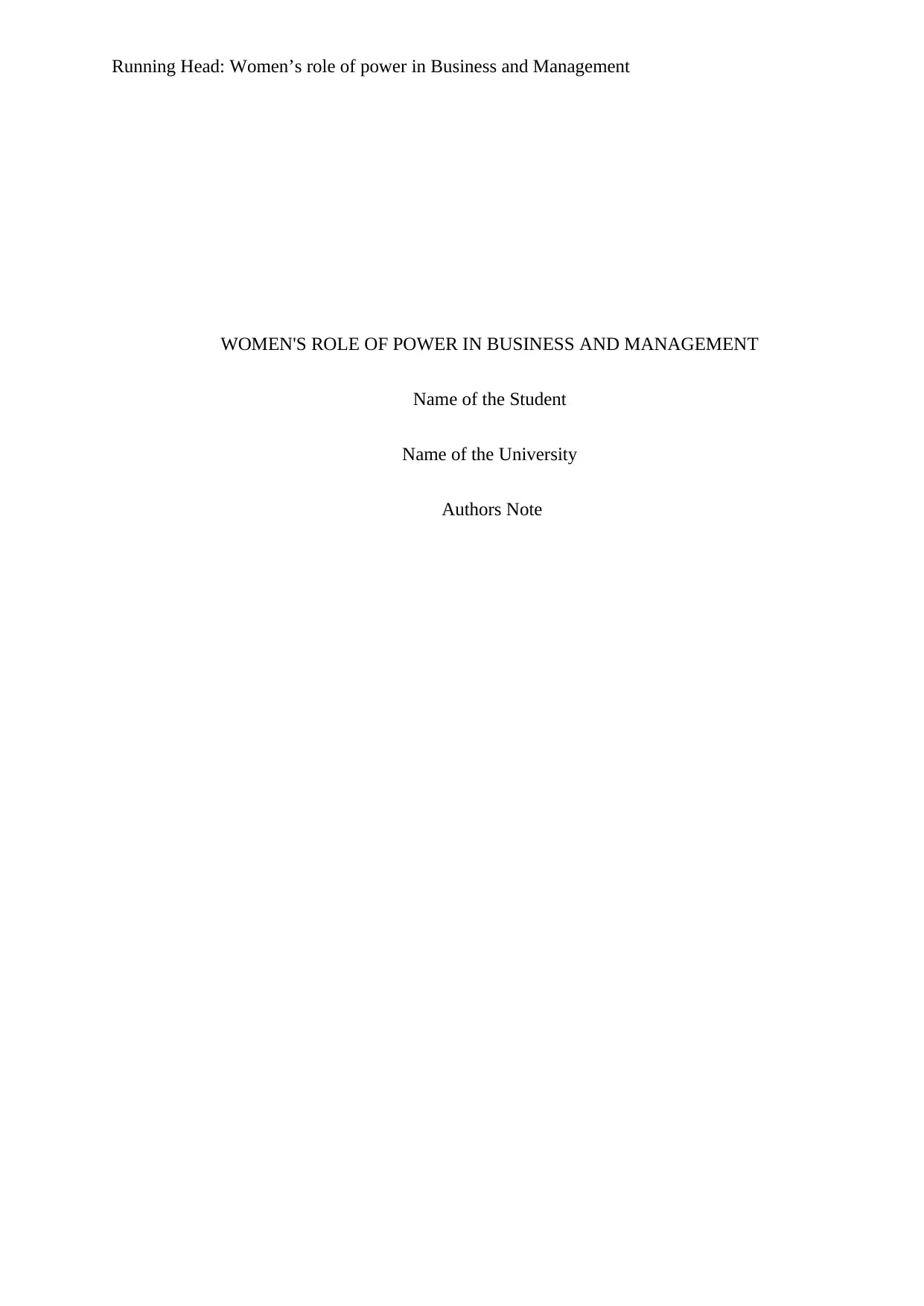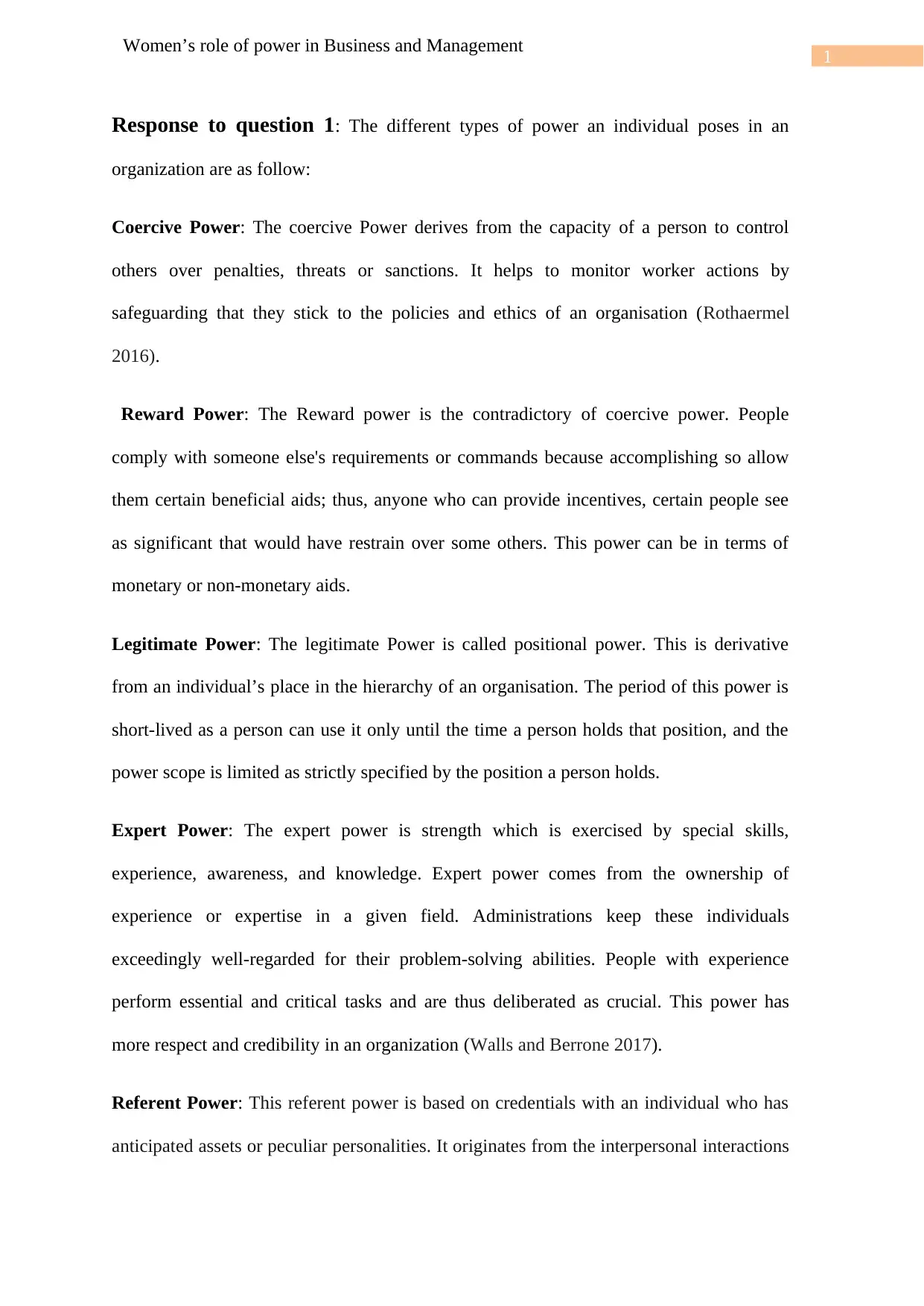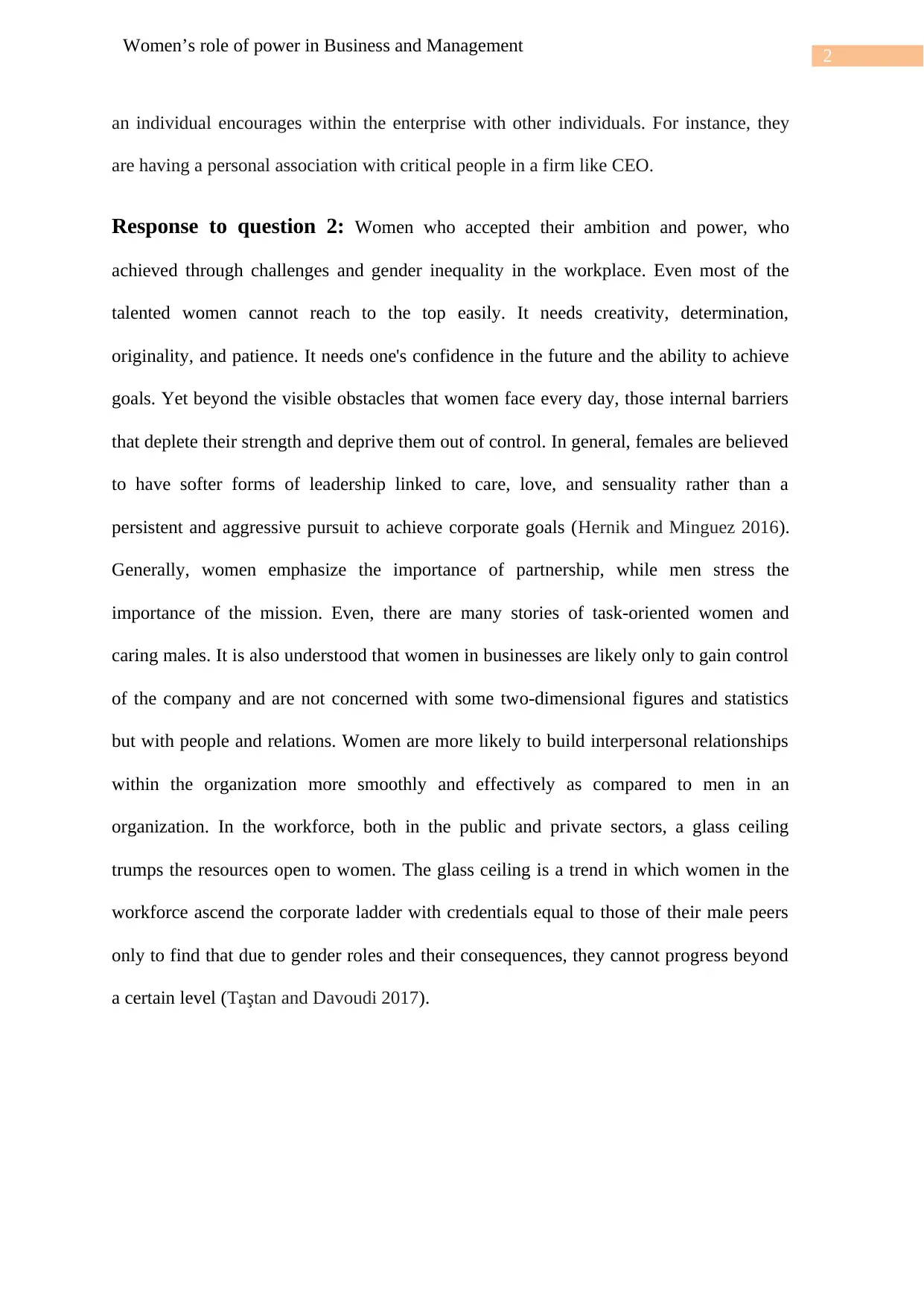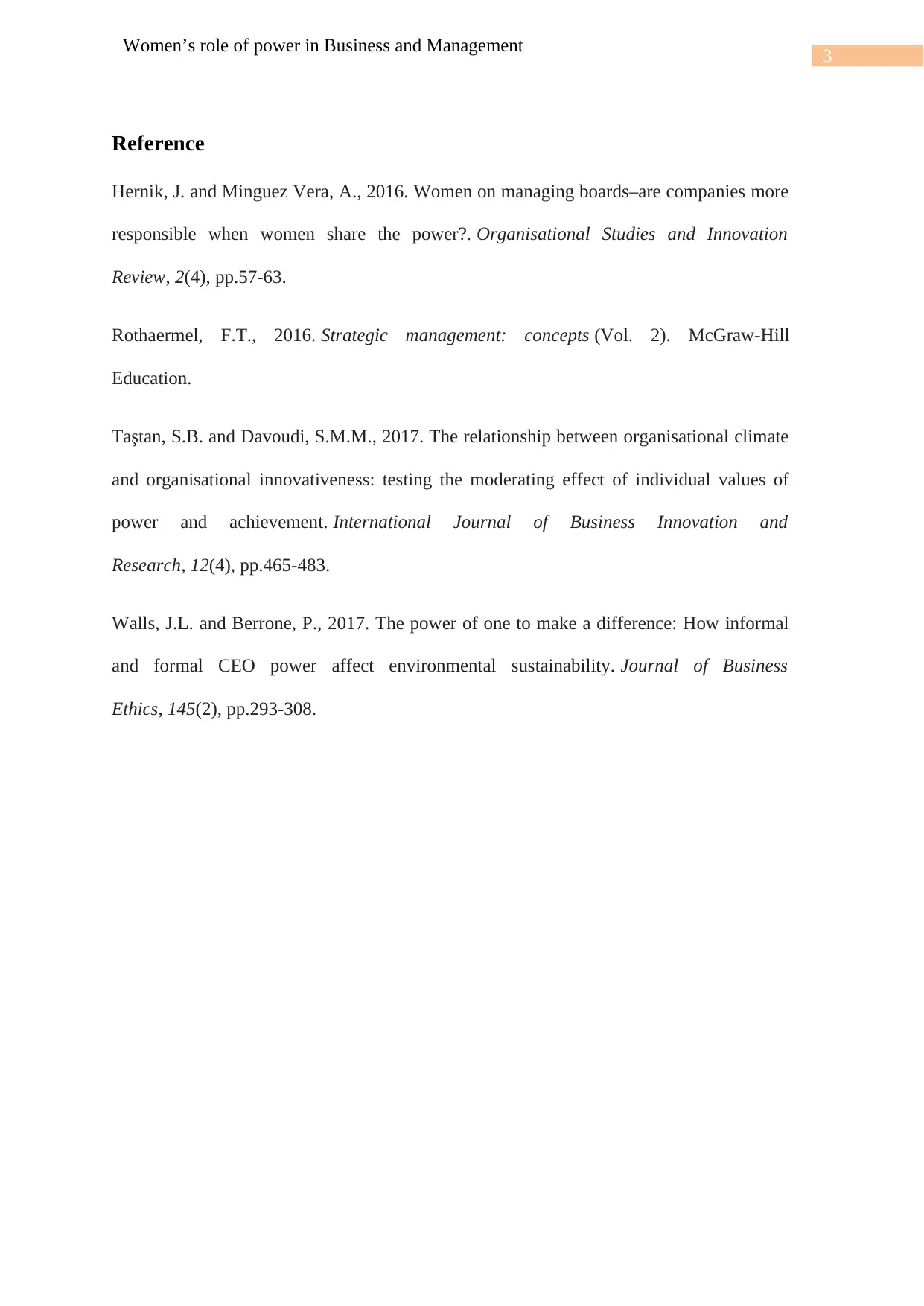Analysis of Women's Role of Power in Business and Management
VerifiedAdded on 2022/09/08
|4
|821
|46
Report
AI Summary
This report examines the multifaceted role of women in business and management, focusing on the various types of power within organizations, including coercive, reward, legitimate, expert, and referent power. It explores the challenges women face, such as gender inequality and the glass ceiling, while also highlighting their strengths in leadership, particularly in building interpersonal relationships. The report references studies that analyze the impact of women in leadership roles, emphasizing the importance of creativity, determination, and the ability to overcome internal and external barriers to achieve success. The analysis provides insights into how women's leadership styles can differ from those of men, and the impact of women on company responsibility and innovation. The report concludes by summarizing the significant factors that influence women's ability to reach top positions in the corporate world.
1 out of 4











![[object Object]](/_next/static/media/star-bottom.7253800d.svg)